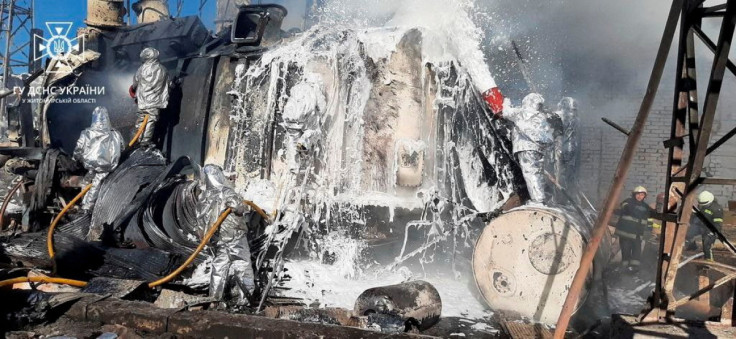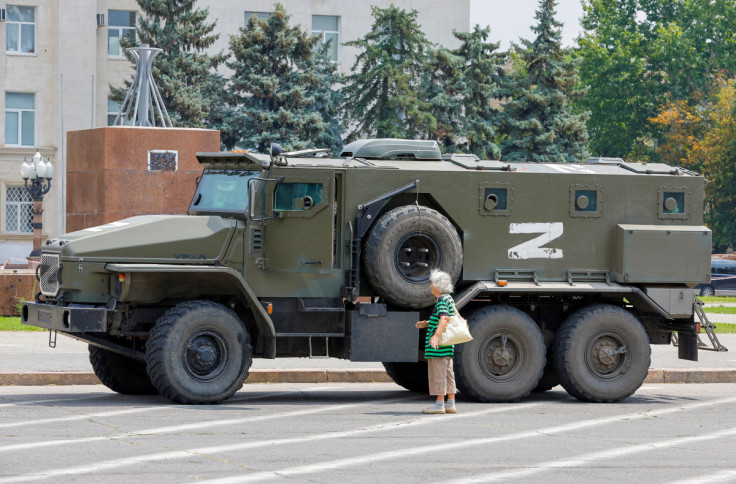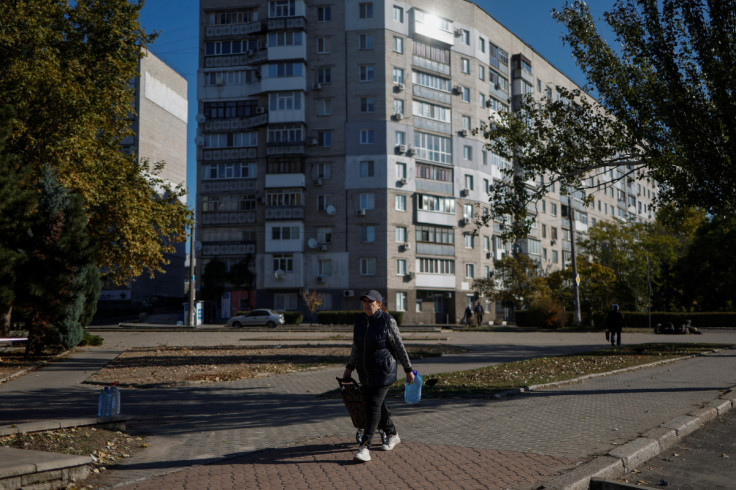Ukrainians Try To Conserve Electricity, Endure Water Outages After Russian Strikes

Ukrainians conserved electricity and some went without running water to try to ease pressure on the grid and give engineers a chance to rebuild infrastructure destroyed by Russian strikes as Kyiv's forces advanced towards the city of Kherson.
Although Ukraine is successfully prosecuting counter-offensives against Russian forces in the east and the south, it is struggling to protect power generating facilities and other utilities from Russian air and drone strikes designed to disrupt lives and demoralise people as winter approaches.
The Ukrainian government on Thursday placed restrictions on electricity usage nationwide for the first time since Russia's Feb. 24 invasion following a barrage of attacks which President Volodymr Zelenskiy said had struck a third of all power plants.
Under the new energy-saving regime, power supply across Ukraine was on Thursday restricted between 7 a.m. and 11 p.m.
Ukraine's energy minister said the government was seeking a 20% reduction in energy use and that Ukrainians were responding to the appeal to limit usage.
"We see a drop in consumption," he said. "We see a voluntary decrease. But when it is not enough, we are forced to bring in forced shutdowns," Minister Herman Halushchenko told Ukrainian TV.
Russia had carried out more than 300 air strikes on Ukrainian energy facilities since Oct. 10, he added.
Zelenskiy told the nation in a Wednesday night video address: "There is new damage to critical infrastructure. Three energy facilities were destroyed by the enemy today.
"We assume that Russian terror will be directed at energy facilities until, with the help of partners, we are able to shoot down 100% of enemy missiles and drones."
One of the facilities hit on Wednesday was a coal-fired thermal power station in the city of Burshtyn in western Ukraine.
"Unfortunately there is destruction, and it is quite serious," Svitlana Onyshchuk, Ivano-Frankivsk's governor, said on Ukrainian television.
"Please limit your electricity consumption," Zelenskiy told Ukrainians in the same address to the nation.
The Ukrainian leader was due to address an EU summit later on Thursday. Leaders of the 27 member states will discuss options for more support to Ukraine, including energy equipment, helping restore power supply and long-term financing to rebuild.
BATTLE FOR KHERSON
Cities such as the capital Kyiv and Kharkiv in the northeast announced curbs on the use of electric-powered public transport such as trolleybuses and reduced the frequency of trains on the metro.
DTEK, a major electricity supplier in Kyiv, told consumers it would do its best to make sure outages did not last longer than four hours.
The whole northeast region of Sumy, which borders Russia, said it would go the entire day - from 0700 to 2300 local time - without water, electric transport or street lighting.
"We need time to restore power plants, we need respite from our consumers," Volodymyr Kudrytskyi, head of grid operator Ukrenergo, told Ukrainian TV.
Russia's defence ministry said on Thursday it was continuing to target Ukrainian energy infrastructure, a strategy it has stepped up since the appointment earlier this month of Sergei Surovikin - nicknamed "General Armageddon" by the Russian media because of his alleged toughness - as overall commander of what Moscow called its "special military operation".
Reuters witnesses said five drones hit the southern port city of Mykolaiv on Thursday, but it was unclear where they had exploded.
The Ukrainian military continued to try to press its advance towards the southern city of Kherson, the only regional capital Russian forces have captured since their invasion eight months ago.
The Russian-appointed administration on Wednesday told civilians to leave the city - control of which allows Russia to control the only land route to the Crimea peninsula, seized by Russia in 2014, and the mouth of the Dnipro river.
On Wednesday, Kirill Stremousov, deputy head of the Russia-backed administration in Kherson, wrote on Telegram that Ukraine had launched an offensive towards Novaya Kamianka and Berislav in the Kherson region.
While Ukraine remained tight-lipped about its operations, its military said in an early Thursday update on the Kherson region said 43 Russian servicemen had been killed and six tanks and other equipment destroyed.
The Russian defence ministry on Thursday described a battle in the area which it said its forces had won in the end.
"In the area of the settlement of Sukhanovo, Kherson region, the enemy managed to drive a wedge into Russian units' defensive lines," the ministry said.
"Due to the introduction of a tank reserve by the Russian command into battle, as well as ambush actions, the enemy was significantly defeated, and Ukrainian units fled. The position on the front edge of the defensive line has been completely restored."
Reuters was not able to verify battlefield reports.



© Copyright Thomson Reuters 2024. All rights reserved.





















